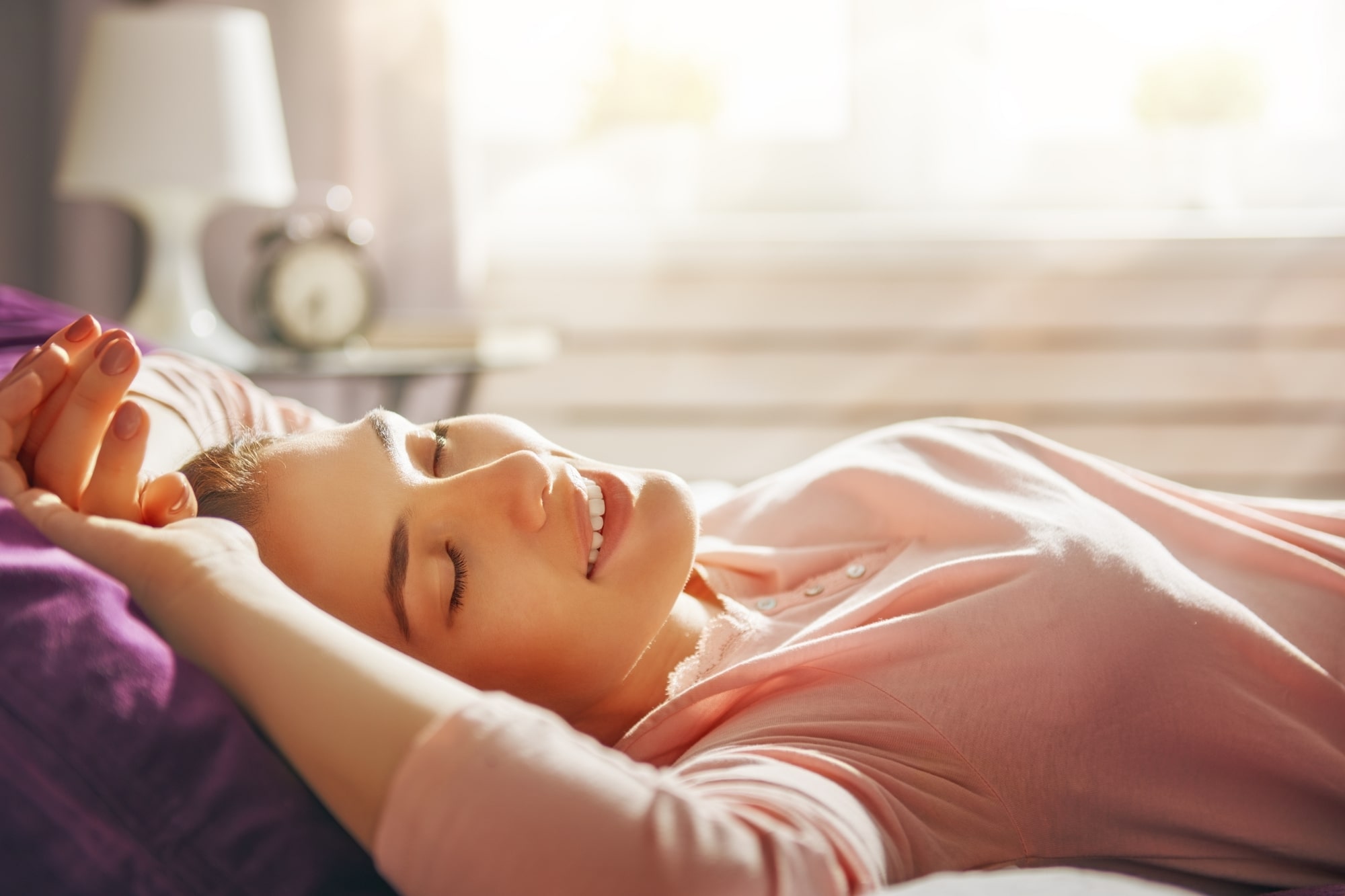We all know that a good night’s sleep is essential to staying healthy, and in today’s COVID-19 environment, it is more essential than ever. This is because a good night’s rest actually boosts your immune system. So if you are one of the many people who have trouble getting enough sleep or whose “sleep clock” is out of whack, we’ve got some suggestions for you.
Circadian Rhythm
Before we start on our suggestions for a better night’s sleep, it may be helpful for you to understand how your “sleep clock” and circadian rhythm operate. Your hypothalamus, which is located in your brain, has several biological features that are responsible for your sleep and wake cycles. These cycles are called your circadian rhythm. When your circadian rhythm is performing as it should, you will feel sleepy at about the same time every night and wake up about the same time every day.
Genetics does play a role in setting your circadian rhythm. However, other factors are also at play. External factors that contribute to your circadian rhythm are things like lighting, temperature, and activity levels. Internal factors like hormones and neurotransmitters also play an important role in this delicate balance.
Change Your Lighting
Lighting is one of the main external factors that tell your body when to sleep and when to wake up.
Research has shown that your brain reacts to the light in your environment. So when there is light present, your brain will get the message that it is time to wake up, and when it is dark, your brain will interpret that to mean it is time to sleep. So it is best for your body to follow the earth’s natural lighting cycle. In the mornings and throughout the day, expose yourself to a lot of sunshine. As the sun sets, start dimming the lights in your home. Continue dimming the lights throughout the evening until your home is almost completely dark at bedtime. Having a complete absence of light in your bedroom should also help you fall asleep faster.
One thing to be aware of is the influence of computers or other electronics that emit “blue light” from their screens. This blue light can interfere with your circadian rhythm by indicating to the brain that it is still daytime. When your brain is tricked into thinking it is still daytime, it will delay the production of melatonin, which is the hormone that causes you to feel drowsy. So it is a healthy practice to avoid using these devices in the evening.
Adjust Your Meal Times
Research on animals has shown that food availability can actually change an animal’s circadian rhythm. In humans, it is suggested that you fast for 16 hours whenever you need to reset your sleep clock. The recommendation is to eat an early dinner around 4 p.m., and then do not eat again until 8 a.m. the next morning. This should help to reset your clock, even in cases of jet lag. Once your clock is reset, it is recommended that you stick to a regular breakfast and dinner time and allow for at least 12 hours between dinner and breakfast the next morning. This has a twofold benefit. First, a 12 hour daily fast gives your body a much-needed break from the work of digestion and allows it to focus on needed repair and cellular rejuvenation. Secondly, it assists your body in achieving a natural, healthy sleep cycle.
Have Regular Sleep Times
Most of us consider ourselves to be either “morning” or “night” people. But whichever you choose, keeping to a consistent sleep schedule will leave you more refreshed and ready for life’s challenges. If your work schedule allows, set your bedtime and wake time as close to your natural cycle as possible; and once you decide on a schedule, be sure to stick to it. This includes your days off. By remaining consistent, your body will get used to the cycle. It is also best to avoid naps. However, when you do have to nap, be sure to nap before 3 p.m. so that it doesn’t interfere with your sleep time, and also be sure to limit your nap to 30 minutes.
Set the Right Sleep Environment
We have already talked about the importance of setting the lighting in your bedroom as dark as possible in order to encourage sleep. In addition to the lighting, there are other environmental factors that will help you fall asleep.
- Be Comfortable – Old, worn-out bedding and pillows can affect your sleep and cause you to wake up with all kinds of aches. Be sure to replace your pillows every 2 years and your mattress every 10 years. During the mattress’s life cycle, be sure to flip the mattress every 3 months in order to maximize its firmness and avoid dents and depressions. Also, be sure to wear comfortable, loose-fitting clothing to bed that is made of breathable material like cotton.
- Eliminate Noise – Your brain will continue to process sound even as you sleep. Loud noises from the television or other devices can cause disruptions in your sleep pattern as your brain naturally wants to wake up and investigate. Many people find creating “white noise” to mask other environmental noises can be particularly helpful. White noise is a steady hum from something like a fan or air conditioner. It is easy to create and can go a long way in assisting deep sleep.
- Cool the Bedroom – Studies have shown that the temperature of your bedroom has a lot to do with how soundly you sleep. Your body’s temperature naturally drops at bedtime, so keeping the room cool helps most people get and remain asleep. Experts recommend that the thermostat in your bedroom be set to between 60 and 67 degrees Fahrenheit.
Sleep Well with Brain Body Health
We at
Brain Body Health understand how busy life can get sometimes. Getting a good night’s rest is key to being able to take on the next busy day. That’s why you can rest easy when you purchase any of our Brain Body Health inventory, because every one of our products is all-natural, THC free, and third-party lab tested to ensure that they contain no unwanted chemicals, molds, metals, or anything else that would interfere with your health and well-being.
Get started on your journey today to take better care of yourself with our all-natural CBD products. Shop
online at any time or, if you have questions, you can contact us by phone, email, or by using our online
contact form. We look forward to serving you today!






